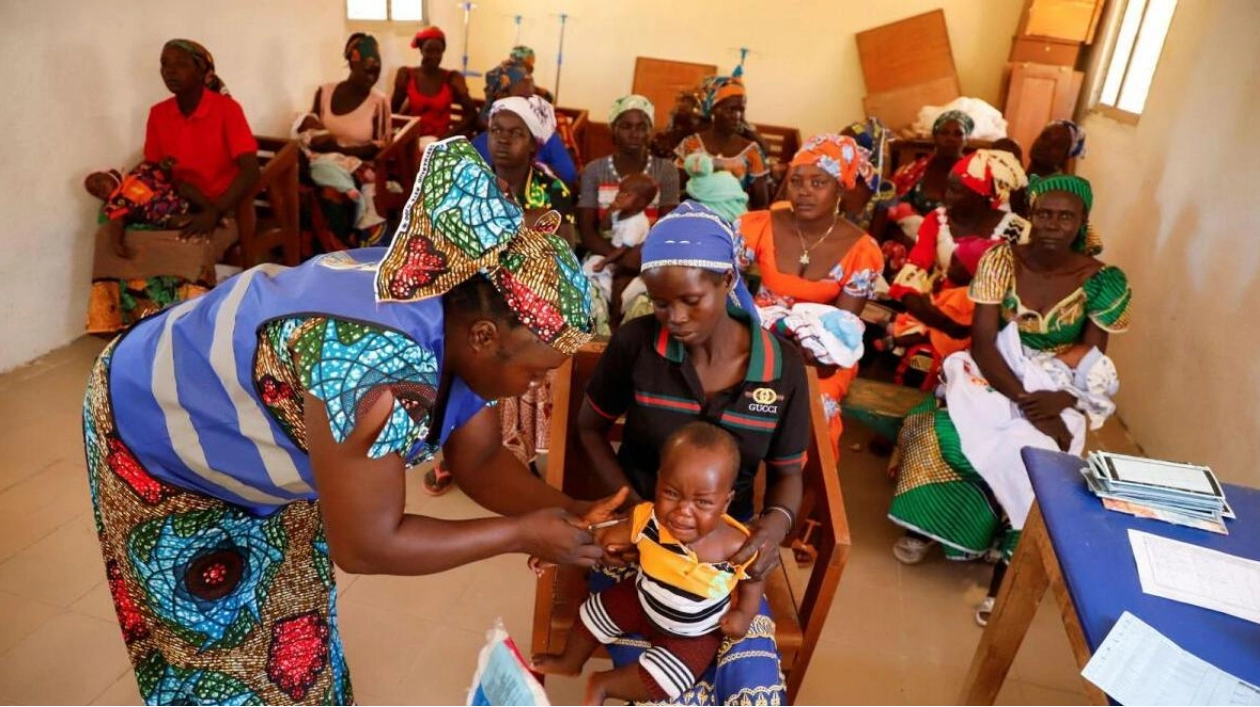A nurse administers a malaria vaccine to an infant at the health centre in Datcheka, Cameroon, earlier this year. Reuters File Photo
According to a new World Health Organisation report, there were approximately 11 million more malaria cases in 2023 compared to 2022, reaching an estimated 263 million. This marks another year of minimal progress in combating this ancient disease, which claimed 597,000 lives, similar to the previous year. The majority of these deaths occurred among African children under the age of five, according to the WHO.
"No one should die of malaria; yet the disease continues to disproportionately affect people in the African region, particularly young children and pregnant women," stated Dr. Tedros Adhanom Ghebreyesus, WHO Director-General. Malaria cases and deaths had significantly decreased between 2000 and 2015, but progress has since stagnated and even reversed, with a notable increase in mortality during the COVID-19 pandemic.
The rise in case numbers is not solely due to population growth. In 2015, there were 58 cases for every 1,000 people at risk; by 2023, this figure had risen to 60.4, nearly three times the WHO's target. The death rate per 100,000 people at risk also increased to 13.7, more than double the target. Despite new tools such as two vaccines and next-generation bed nets, challenges like climate change, conflict, displacement, drug and insecticide resistance, and insufficient funding have hindered progress, the WHO noted, although some countries have made advancements.
In 2023, $4 billion was allocated to fight malaria, far short of the estimated $8.3 billion needed, according to the UN health agency.
Source link: https://www.khaleejtimes.com






